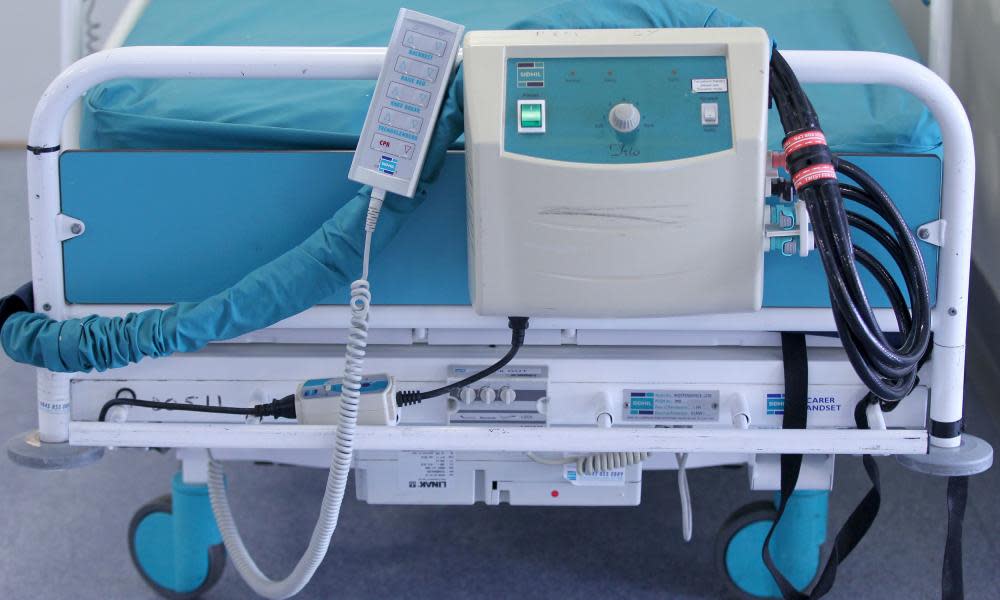£20.5bn NHS funding boost not enough to improve care – study

Almost all the £20.5bn extra a year for the NHS risks being swallowed up by the ageing population, pay rises, the rising cost of drugs and hospitals’ deficits, a report has concluded.
As little as £1.3bn of the increase could be left to fund improvements in treatment unless the service dramatically overhauls how and where it cares for patients, the report by the IPPR thinktank and former senior NHS staff says.
The findings raise doubts about how far the £20.5bn that Theresa May gave the NHS in England to mark its 70th birthday this year will allow it to expand services, given the other demands it is facing.
The report has been shared with the Guardian a few days before NHS England publishes its long-term plan, expected early next week, which will set out how the funding injection, due over five years, will be spent.
The analysis was carried out by the IPPR and Carnall Farrar, a consultancy run by Ruth Carnall, a former head of the NHS in London, and Hannah Farrar, a former executive at the NHS financial regulator Monitor.
They conclude: “Whilst the new funding will be sufficient to meet increases in day-to-day demand and rising costs, as well as wiping out provider [hospital trust] deficits, it will not fund significant improvements in care unless the NHS radically increases productivity.”
The analysis models three scenarios for how much of the £20.5bn will be left to improve cancer, mental health and other areas of care depending on how productive the NHS proves to be over the five years.
In the worst-case scenario, in which NHS productivity rises by just 0.8% a year – its historic average – only £1.3bn of the total would be available for improvements.
Providing the extra care caused by the growing number of over-75s and over-85s would cost £16.1bn a year, the authors estimate. Staff pay rises and pensions, the rising cost of drugs and other operating costs would take another £7bn, while £1.56bn would be needed to cover deficits built up by NHS providers of acute care.
The service would need to deliver gains in efficiency in order to make up the shortfall between the total cost of all these demands and the £20.5bn while also generating a surplus to be spent on improving care better, the report says.
Harry Quilter-Pinner, a senior research fellow at the IPPR, said: “Theresa May’s NHS funding deal is generous but it will not go far. Once you’ve factored in an ageing population and the rising cost of staff and medicines, there is barely any money left in the coffers for the improvements in access and quality that the public really want.”
If the NHS delivers the Treasury’s demand for 1.1% annual rises in productivity, that would leave £3.3bn for improvements. And if it sustained the 1.4% annual gains it has managed recently then as much as £5.2bn could be available.
The Department for Health and Social Care did not support or reject the analysis but said the £20.5bn would ensure the way the NHS worked was transformed.
“We’re backing the long-term plan for the NHS with a historic funding settlement of an extra £20.5bn a year to improve performance and make our health service fit for the future, ensuring every penny is spent on improving patient care,” a spokesperson said.
“Prevention will be at the heart of the plan. We recently confirmed that primary and community care services will receive a growing share of overall NHS funding, so more people can receive care in their communities or at home, reducing the pressure on hard-working NHS staff.”

 Yahoo News
Yahoo News 
